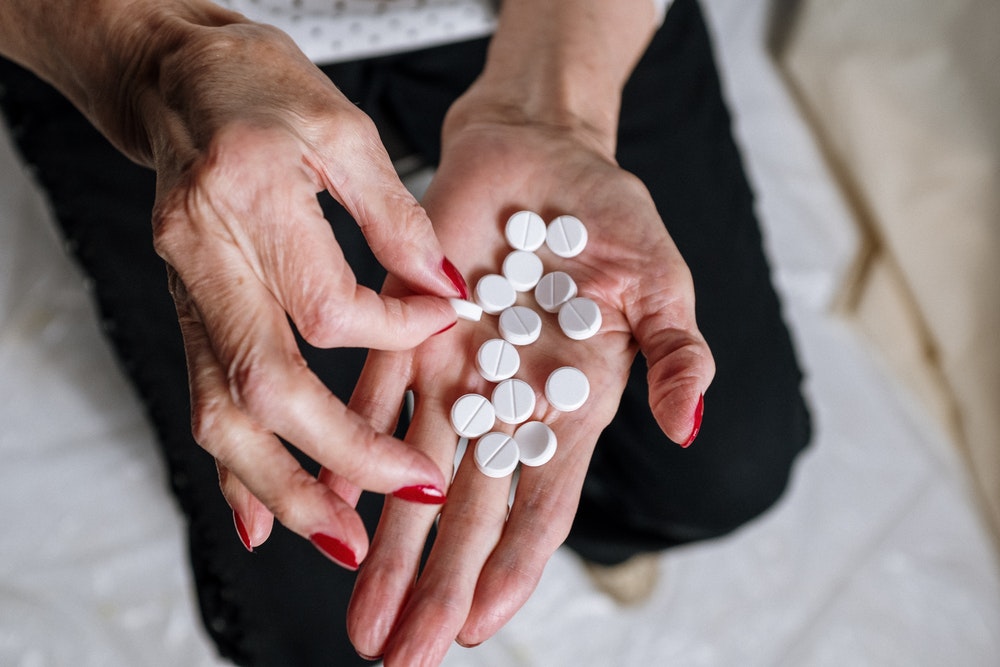As you grow older, your body begins to function more on medications and regular checkups. The probability of heart attack, stroke, seizures increases, and for these conditions, one needs to be more inclined to their daily regime along with proper medications.
Aspirin is one o those medications that are a support system for many older adults since long back. The drug prescribed by the physician tends to help older people in lowering their risk of heart disease and keeping cardiovascular functioning a little more efficient.
Since old age is all about fighting various sorts of diseases at a go, a low dosage of aspirin daily primarily becomes a part of senior citizens globally. The present times are so that a disease so fatal like COVID is likely to attack the older populace more than any other individual. Hence an increased chance of anxiety, stress, and attack.
But a recent study and analysis have brought into light a revelation about the harmful side of aspirin. The medication has been the no-harm-baby cure for preventing heart attack. Still, as far as the recent scientific analogies are concerned, specific medical Journals and experts have shared their opinion about the risk of amplified cancer in older people due to regular consumption of aspirin.
The consumption of aspirin would be more likely the reason for internal bleeding in an individual, according to some studies and analysis. The Journal of the National Cancer Institute (JNCI) published recent findings of facts about the consumption of aspirin, stating that it could speed up the cancerous cells in the body of older individuals who are in 70 years of age or more.
JNCI based its findings on a survey, and they included 20,000 older adults in Australia and the United States. They found a threatful conclusive theory which indicated a 70-year-old dying due to stage 3 cancer, and the reason was the daily consumption of aspirin. The group who participated in the survey later saw the risk of cancer spreading into other parts other body elevated by 20 percent.
Experts revealed that aspirin is one of those widely consumed medicines amongst older adults. It is inevitable because of the risk of heart attack and stroke during a person’s old age.
Some unexplained theories and Confused Findings
There are still experts and pharmacists who believe that even after JNCI’s findings, concluding anything with permanence would be wrong about the harmful effects of aspirin concerning increased cancer cells in an older adult’s body. It seems a valid point keeping in mind the ambiguities associate with these findings.
There was a study published in the British Journal of Clinical Pharmacology this year that duly noted a chance of gastrointestinal bleeding due to daily low-dose of aspirin, even though it helped in improving cardiovascular condition.
A drug and medical device database, First Databank’s Clinical Pharmacists, Christine Cheng, shared some of his opinion about JNCI’s findings of aspirin’s chances to increase cancer. He said,
The aspirin might had a delayed benefit on those individuals who were part of that survery. They might not had taken aspirin for a very long time that could help in observing the beneficial side of the drug. There could surely be other factors involved in the end result such as, age, type and pre-existing risk of cancer which reacted to aspirin in a way it shouldn’t have.
We must not forget that there are also theories involved with aspirin ingestion wherein it has been considered with an anti-cancer benefit. So it is still early to conclude any of the actual mechanisms related to aspirin’s affect on cancer.
What would be best is to consult a physician before pre-supposing any side-effects based on some theory which still are ambiguous in nature.
Your Doctor would Guide you towards the Right Path.
People with their habit of taking low-dosage of the drug with the thought that it has lower risk factors are making a mistake and taking their health lightly. Even if you want to indulge your routine into this medication, be sure to consult a physician who might guide you and make you aware of certain factors that you are ignorant of for so long.
Clinical Pharmacist from First Databank says,
Daily aspirin is no longer recommended as standard for heart attack or stroke prevention because we’ve learned that the risks for side effects such as internal bleeding outweigh the benefits for many patients. People shouldn’t start taking daily aspirin on their own
Maybe JNCI’s data doesn’t come with a detailed note about what and how, but the warning is alarming in itself, suggesting to rethink your plans to consume aspirin fro every small thing you might suffer from, including fever or pain.
Cheng mentioned the need to read the label while consuming the drug about the dosage and its side effects because every medicine reacts differently in each individual’s body. She suggests asking your physician a few questions about the consumption of the drug to make yourself clear in that situation:
- How might taking an aspirin benefit you?
- What is the risk involved in it?
- Is there any other medication you take can interact with aspirin and react inside the body?
- Is taking aspirin the right decision for you?
- How long to move forward with aspirin to prevent a heart attack or protect you from cancer chances?
As told before, it all depends on how your body might react to the medicine in the long run, but it would be better analyzed and evaluated by your Doctor.




